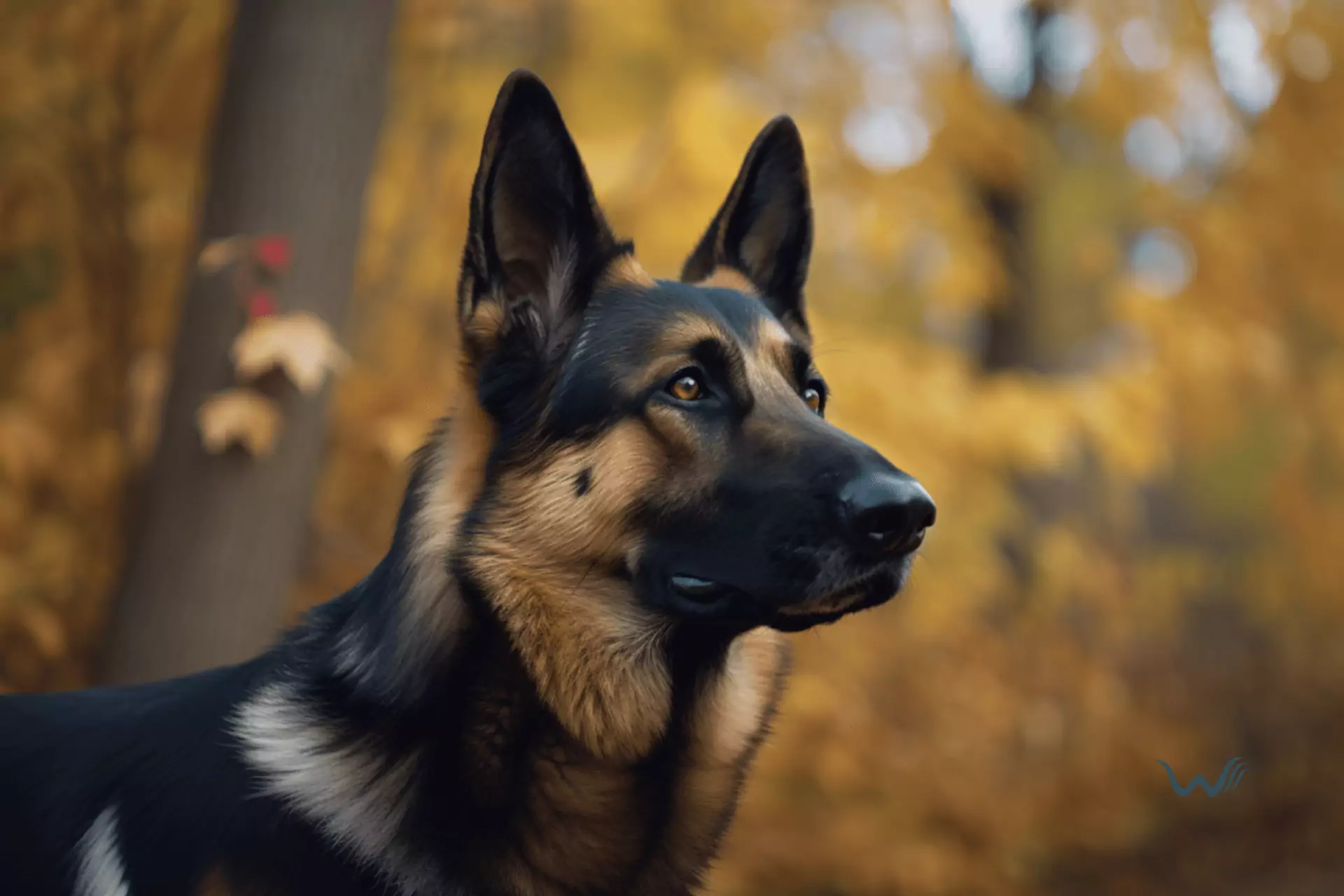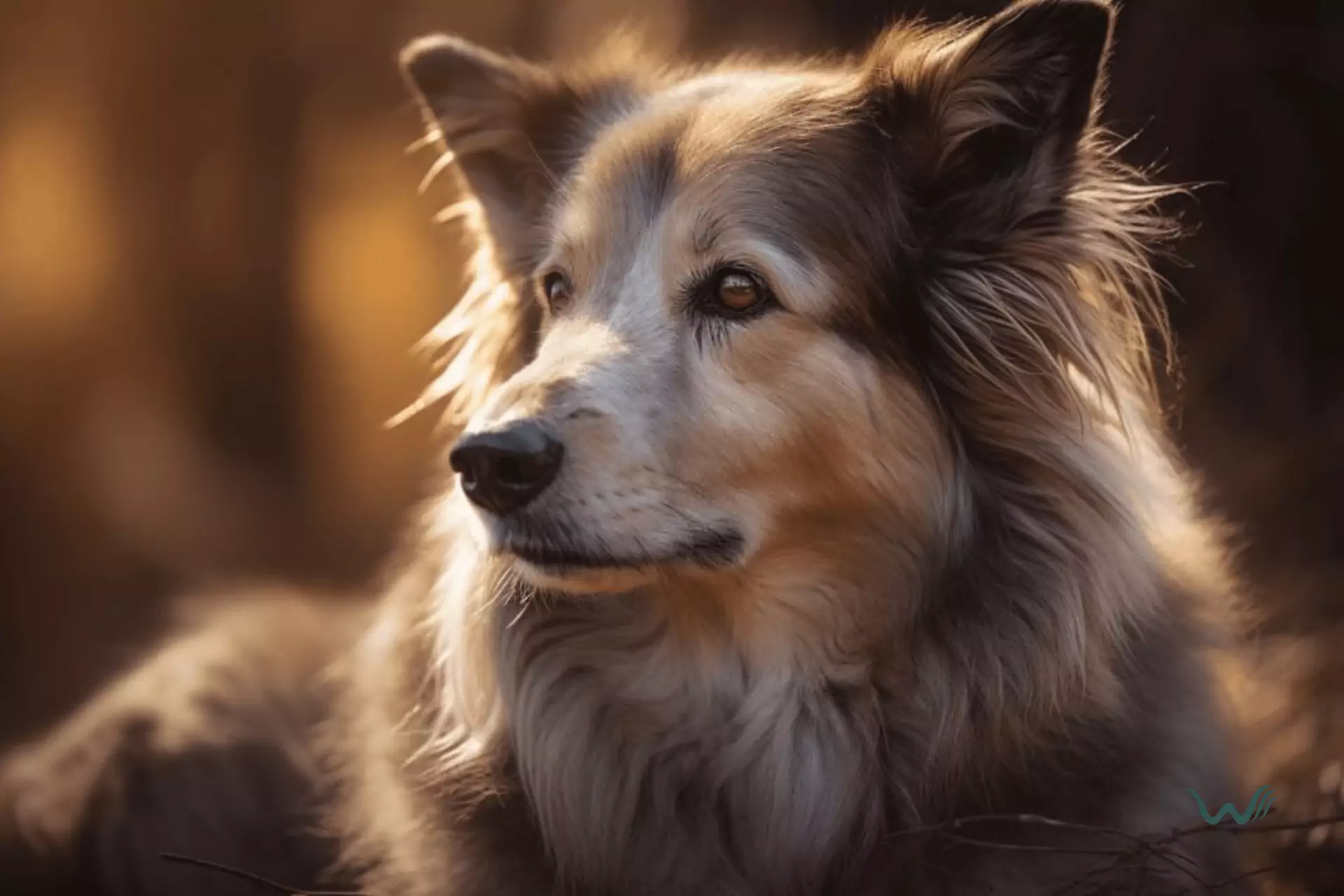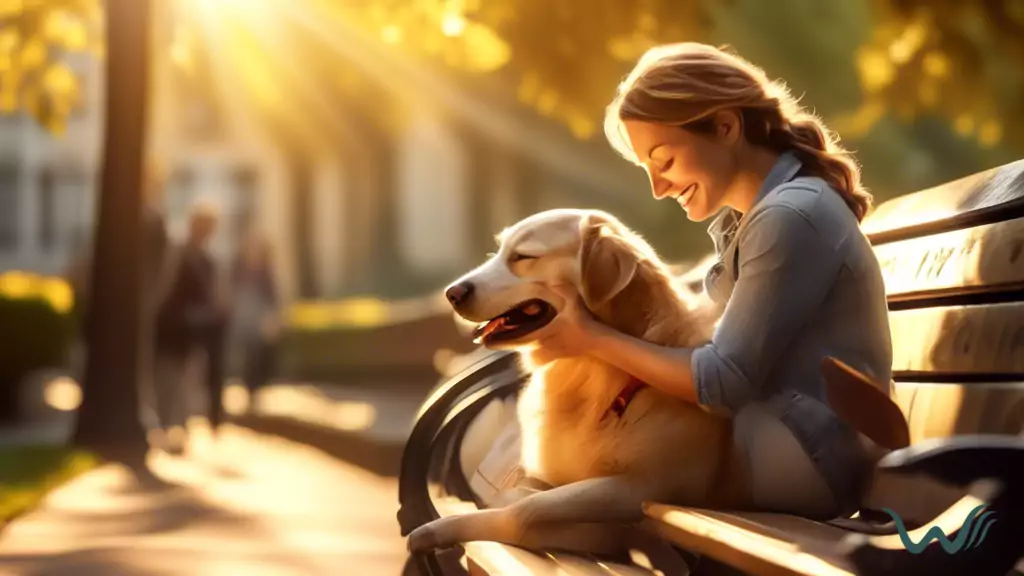

5 Details To Know About The Miniature German Shepherd Breed
by Haley Mills
Last updated: April 22, 2024
Verified and Approved by:
Angela Morris,
MSW, LCSW
Fact Checked

Are you looking to bring a new furry friend into your family? If so, the miniature German Shepherd breed may just be the perfect addition for you. These pint-sized pups have gained popularity recently due to their adorable appearance and loyal nature. This article will explore five key details about the miniature German Shepherd breed that every prospective owner should know.
First and foremost, it’s important to understand the history and origin of the miniature German Shepherd. While they may resemble their larger counterparts, they are not a separate breed. Rather, they result from breeding a purebred German Shepherd with a smaller dog, typically a smaller breed like a Shetland Sheepdog or a Border Collie. This deliberate crossbreeding creates a smaller version of the German Shepherd, maintaining many of the breed’s desirable traits in a more compact package. So, if you’ve always loved German Shepherds but prefer a smaller size, the miniature German Shepherd may be the perfect fit for you.
History and Origin of the Miniature German Shepherd
The origins of the Miniature German Shepherd can be traced back to a crossbreeding between German Shepherds and smaller dog breeds, resulting in a unique and compact canine companion. This breed was specifically developed to have the appearance and temperament of a German Shepherd, but in a smaller size. The exact mix of breeds used in developing the Miniature German Shepherd may vary, but common crosses include German Shepherds with Border Collies, Corgis, or Shelties.
The goal of creating the Miniature German Shepherd was to produce a dog that possessed the intelligence, loyalty, and working ability of the German Shepherd, but in a more manageable size. This breed is often favored by individuals who love the German Shepherd breed but may not have the space or ability to handle a larger dog.
Despite its smaller size, the Miniature German Shepherd retains many characteristics that make it such a popular breed. They are highly trainable, protective, and make excellent working dogs. They are also known for their loyalty and are often devoted to their families. Overall, the Miniature German Shepherd is a wonderful option for those looking for a smaller version of the beloved German Shepherd breed.
Physical Characteristics and Size
With their compact size and distinct physical features, miniature German Shepherds are fascinating. These dogs typically stand between 15 to 20 inches tall at the shoulder and weigh between 25 to 50 pounds. Despite being smaller in size compared to standard German Shepherds, they still possess the same strong and muscular build. Their bodies are well-proportioned, with a straight back and deep chest. Miniature German Shepherds have a noble and confident posture, which adds to their overall regal appearance.
One of miniature German Shepherds’ most striking physical characteristics is their expressive and intelligent eyes. Their eyes are typically medium-sized and almond-shaped, giving them a focused and alert expression. They have erect ears that are medium-sized and set high on their head. Their muzzles are long and strong, with a black nose and well-developed jaws. The coat of a miniature German Shepherd is dense and medium-length, with a double coat that provides insulation and protection. Common coat colors include black, tan, sable, black, and red.
They are a visually impressive breed, combining the strength and athleticism of a German Shepherd with a smaller and more compact size. Their physical characteristics contribute to their unique and captivating appearance, making them a popular choice among dog enthusiasts.
Temperament and Personality Traits
Contrary to popular belief, miniature German Shepherds exhibit the same loyal and protective nature as their larger counterparts. While they may be smaller in size, their personality traits are not diminished. Miniature German Shepherds are known for their intelligence, loyalty, and obedience, making them excellent family pets and working dogs.
These dogs are incredibly loyal to their owners and will go to great lengths to protect them. They are known for their strong bond with their families and will often act as a protective guardian. Miniature German Shepherds are also highly intelligent, which makes them easy to train. They thrive on mental stimulation and enjoy learning new commands and tricks. Their intelligence, combined with their loyalty, makes them excellent working dogs, as they can perform a variety of tasks and excel in activities such as obedience, agility, and search and rescue.
In terms of their temperament, miniature German Shepherds are typically confident, courageous, and alert. They are known for their calm and stable disposition, which makes them great companions for families with children. However, they can be wary of strangers and may require proper socialization to ensure they are comfortable in new situations. With the proper training and socialization, miniature German Shepherds can be friendly and sociable with both humans and other animals.
Miniature German Shepherds have a temperament and personality similar to their larger counterparts. They are loyal, protective, intelligent, and calm, and stable. Whether as a family pet or a working dog, they will bring joy and companionship to their owners.
Training and Exercise Needs
You’ll need to devote regular time and effort to train and exercise your miniature German Shepherd properly. These dogs are highly intelligent and eager to please, making them relatively easy to train. Start with basic obedience commands such as sit, stay, and come, and gradually move on to more advanced training exercises. Positive reinforcement techniques, such as treats and praise, work best with this breed, as they respond well to rewards and positive feedback.
In addition to training, regular exercise is essential for a miniature German Shepherd’s physical and mental well-being. These dogs have high energy levels and love to be active. Aim for at least 30 to 60 minutes of exercise every day, including walks, runs, playtime in a fenced yard, or interactive games like fetch. Mental stimulation is also vital for this breed, so consider incorporating puzzle toys or training sessions that challenge their problem-solving abilities.
Committing to consistent training and exercise can help your miniature German Shepherd develop into a well-behaved and healthy companion. Remember to tailor the training and exercise routine to your individual dog’s needs and abilities, and always prioritize their safety and well-being.
Can Miniature German Shepherds be Trained as Service Animals?
Yes, miniature German shepherds can be trained as service animals. Despite their smaller size, they are still highly intelligent and trainable. When properly trained, these German shepherds as service animals can be incredibly effective in assisting individuals with various disabilities.
Are Miniature German Shepherds High Energy Dogs Like Miniature Horses?
Miniature German Shepherds are indeed high energy dogs just like miniature horses. To keep them healthy and happy, they require regular exercise needs for miniature horses. Daily walks and playtime are essential to meet their energy levels and prevent behavioral issues.
Health and Care Requirements
Regularly brush and groom your miniature German Shepherd to maintain their coat’s health and prevent matting. The miniature German Shepherd has a double coat that consists of a thick undercoat and a longer, coarser outer coat. This breed sheds moderately throughout the year, with heavier shedding occurring during the spring and fall. Regular brushing helps remove loose hair and prevents it from matting, leading to discomfort and skin issues. Additionally, grooming your miniature German Shepherd helps to distribute natural oils throughout their coat, keeping it shiny and healthy. It is also essential to regularly check their ears for any signs of infection or debris and clean them as needed.
In terms of overall health, the miniature German Shepherd is generally a healthy breed. However, like all dogs, they are prone to certain health issues. It is important to schedule regular veterinary check-ups to ensure that your dog is in good health and to catch any potential issues early on. Some common health problems that miniature German Shepherds may be prone to include hip dysplasia, elbow dysplasia, and certain eye conditions. Providing them with a balanced diet, regular exercise, and maintaining a healthy weight can help minimize the risk of these issues. Additionally, keep up with their vaccinations, flea and tick prevention, and heartworm prevention to protect them from common diseases and parasites. By taking proper care of your miniature German Shepherd’s health, you can help them live a long and happy life.
Final Words
The miniature German Shepherd is a unique and fascinating breed. With its origins in both the German Shepherd and the smaller breeds, this dog has a rich history and a distinctive appearance. Despite its smaller size, it still possesses its larger counterpart’s intelligence, loyalty, and protective instincts.
Regarding training and exercise, the miniature German Shepherd requires consistent and firm guidance. They thrive in an active and stimulating environment; regular exercise is essential to keep them mentally and physically stimulated. Additionally, proper care and attention to their health needs, such as regular veterinary check-ups and a nutritious diet, are crucial to keeping them happy and healthy.
Overall, the miniature German Shepherd is an excellent companion for individuals or families looking for a smaller version of the beloved German Shepherd breed. Their unique traits and charming personality will surely bring joy and love to any household. So, if you are considering adding a miniature German Shepherd to your family, be prepared to give them the love, care, and attention they deserve, and you will have a loyal and devoted companion for life.
Certify Your Emotional Support Animal Today

Why You Can Rely on Us?
At Wellness Wag, we believe your pet deserves care rooted in both science and compassion. Each article is carefully researched, written in clear language for pet owners, and then reviewed by qualified professionals to ensure the information is evidence-based, current, and practical for real-life care. Our goal is to help you feel confident in making informed decisions about your pet’s health and well-being.
Reviewed by
Angela Morris, MSW, LCSW
Angela is a licensed clinical social worker with 20 years of experience in patient advocacy and community mental health. She has assisted numerous clients with ESA evaluations and brings a deep understanding of disability accommodations, ensuring that all information is accurate, supportive, and practical.

Written by :
Haley Mills
Last Updated :
April 22, 2024











